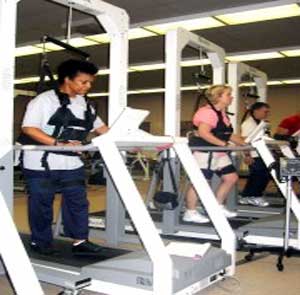“Our sample, which included older women, is the first to show that in the 70- to 79-year-old age group, exercise can mitigate the genetic effects of obesity,” said the study’s lead author Heather Ochs-Balcom, associate professor of epidemiology and environmental health in the University at Buffalo’s School of Public Health and Health Professions.
“The message here is that your genetic risk for obesity is not wholly deterministic,” Ochs-Balcom adds. “The choices we make in our life play a large role in our health.”
The study was published recently in the journal Menopause. It included researchers from UB, as well as the Fred Hutchinson Cancer Research Center; University of Wisconsin-Milwaukee; Rush University Medical Center; University of California, Davis; and The Ohio State University.
Researchers studied 8,206 women of European ancestry who participated in the Women’s Health Initiative. They used a larger set of 95 genetic polymorphisms to construct their body mass index genetic risk score to study the interaction between physical activity and obesity. Then, they evaluated whether genetic associations were modified by exercise and age.
The study revealed that genetic associations on BMI were strongest in sedentary postmenopausal women and weakest in women who reported high levels of recreational physical activity.
“Our work suggests that in older age, we can overcome our destiny for obesity — given to us by our parents — through exercise,” Ochs-Balcom said.
The study is significant in that, up to this point, little had been known about the effect of obesity genes later in life, particularly whether genetic predisposition can be mitigated by healthy behaviors such as physical activity, the researchers note.
It’s also one of a growing number of studies highlighting the benefits of being physically active, especially as it pertains to healthy aging.
“For the elderly, exercise is important for preventing muscle loss, which helps reduce the risk of falls,” says Ochs-Balcom. “Plus, there are many other benefits of exercise in older adults.”

















Related Items
Brain Activity Data can predict what will be popular with consumers
Reviving sporting culture in India is vital for a healthy society
Obesity Can Add Five Weeks Of Asthma Symptoms In Kids